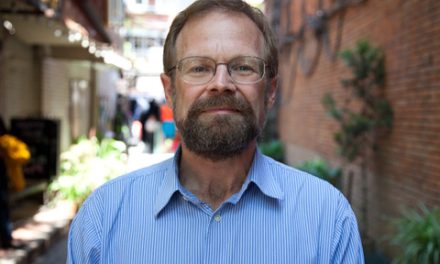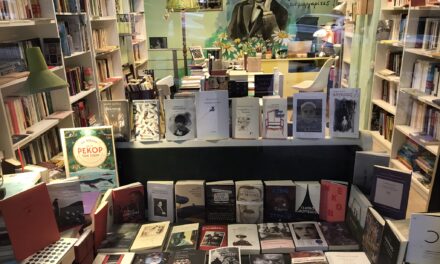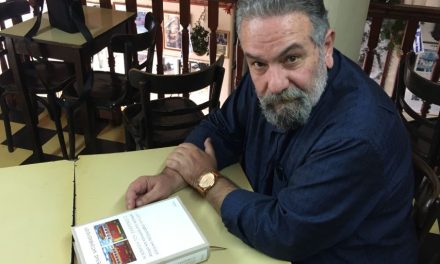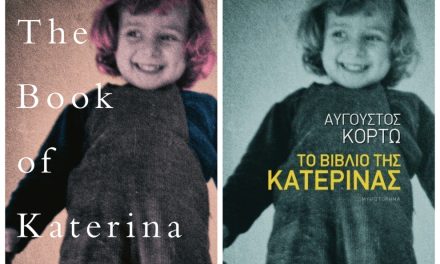Maria A. Karamitsos is a journalist, author, and poet. She’s the founder & former publisher/editor of WindyCity Greek magazine and former associate editor & senior writer for The Greek Star newspaper. Maria currently pens a literary column for NEO magazine and contributes to Greek City Times and TripFiction. Her work has been published in The Magic of Us-A Moms Who Write Poetry Anthology, The Pen Poetry Magazine, Voices of Hellenism Literary Journal, Highland Park Poetry, GreekCircle magazine, The National Herald, GreekReporter, Harlots Sauce Radio, Women.Who.Write, KPHTH magazine, XPAT Athens, and more. She has contributed to two books: Greektown Chicago: Its History, Its Recipes and The Chicago Area Ethnic Handbook. She’s currently working on her 1st novel.
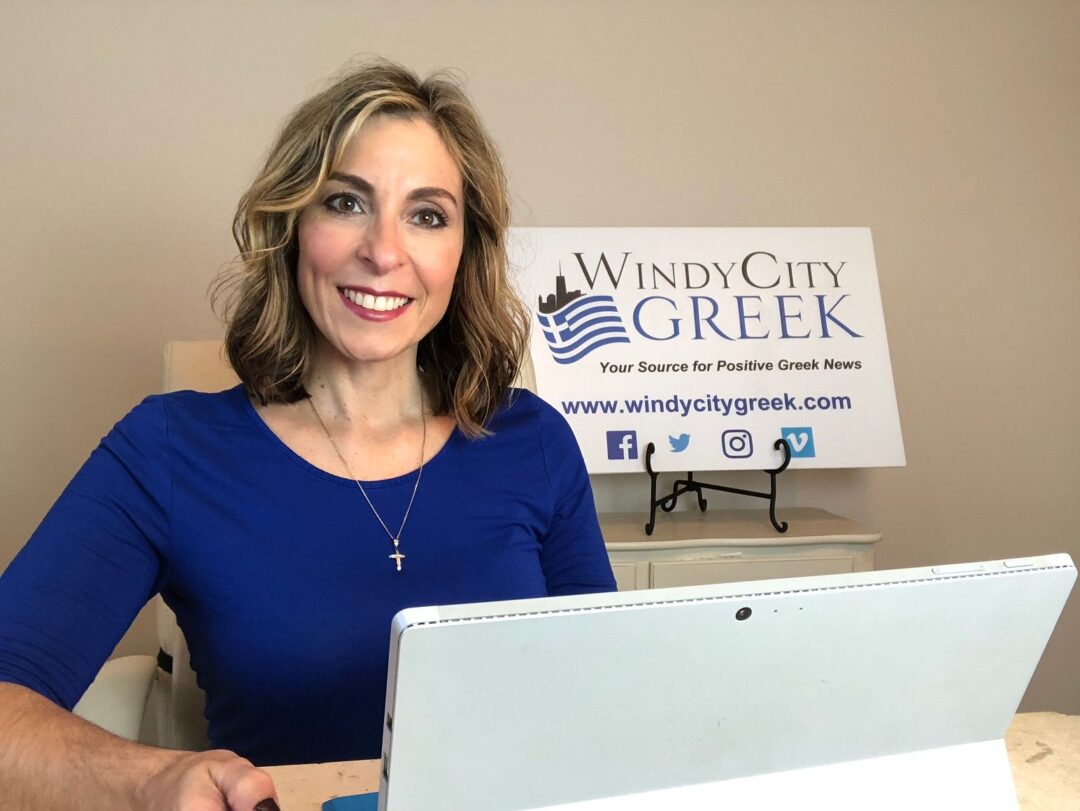
A journalist, an author and a poet. Where do all these attributes meet? Which is the binding thread?
The binding thread is that they all tie into and originate from my Hellenic heritage and Orthodox faith. My children joke that I made a career out of being Greek! I always loved to write, but as the daughter of immigrants, I was encouraged to pursue a course of study that would lead to a career in which I could easily support myself. I grew up in a family business—the quintessential Greek diner—and went on to study business. I majored in marketing, as it was business-related and allowed me to be creative. After about a decade working in marketing, the economy took a dive. Most times, when companies look to slash expenses, they cut marketing, because it’s not always easy to tie revenue directly to marketing campaigns. When they look only at the numbers, they see expenses but no revenue. So, I lost my job. Each year for the next several, I lost jobs because a company closed, or the marketing department closed, or jobs were eliminated. It became increasingly difficult to find work. As I burned through my savings, I realized that I needed to find a new career. But I didn’t know what that would be.
I did freelance writing. I helped companies setting up websites for the first time determine the flow of their sites and develop copy to tell their story. During that time, in 2002, I became a contributing writer to Greek Circle magazine. A woman from church started it in 2001. I simply asked if I could write for her. It was a quarterly publication. I got paid, but certainly not enough to live on. I joined the Greek Media Club. At an event, I chatted with one of the founders. He was the Sports Editor for The Greek Star newspaper. He said, “Maria, you know everything that’s going on in Greek Chicago. You should write an events column.” I thought, “Why not?” In June 2005, over lunch, we pitched the idea to the chairman. While I didn’t have any “real” journalistic experience, the chairman liked my energy and enthusiasm, so he gave me a shot. “Sto Kentro”, a column about local events was born. It was published twice a month. I didn’t get paid, but I thought it to be a foot in the door. That column became very popular. People still talk about it!
In 2005, the publisher of Greek Circle was tapped by a Midwest book publisher to write the book Greektown Chicago: Its History, Its Recipes. Knowing my great interest in Chicago Greek history, she brought me into the project. As the Food Editor, I interviewed the selected restaurants, wrote the restaurant section, and edited all the recipes in the book. I also wrote photo captions. That was my first book contribution. The publisher then hired me to orchestrate a launch party. We held the event at the former location of the National Hellenic Museum, with an exhibit of ephemera from the Chicago Greek community. At the end of the party, the chairman of the newspaper approached me about my future plans. The editor was about to have her second child and needed help. He asked me if I’d like to be the Associate Editor—I could write about anything I wanted, as long as it was Greek-related, and I’d get paid. And that’s how it all began. For 10 years, until the newspaper shuttered in 2015, I served as Associated Editor and Senior Writer. I met so many people and learned so much.
During that time, a publisher approached me to write the chapter on Greek-Americans for the Chicago Area Ethnic Handbook, my second book contribution.
But in 2015, not only did the The Greek Star shut down, so did GreekCircle. I wasn’t sure what I’d do next. I thought perhaps I’d work on a novel I’d started a few years before, spend more time with my children. But as we prepared for a trip to Greece that summer, something happened that changed everything. This was at the height of Greece’s economic crisis. Almost everything I read seem to incorporate this recurring theme: people thought “Greeks built the Parthenon and called it a day”. I got angry. I knew Greeks in Greece and around the world were doing amazing things—those are the kinds of stories I’d written about all those years. I got so fired up, I decided I had to do something about it. So, I created a digital magazine that highlighted all the amazing things Greeks around the world were doing, with a dash of Chicago news (since we no longer had any Greek print or online media here). WindyCity Greek was born. It was wildly popular, read all over the world. Unfortunately, I couldn’t make it work financially so I had to shut it down. I struggled with that decision for the better part of a year. I closed it at the end of 2019.
I had discussed partnerships with several Greek media outlets in different cities, but then the pandemic hit, and the opportunities dried up. Everyone was struggling. In the States, Greek media is on life support. We have none left in Chicago. I returned to freelance writing. I’d started a novel in 2012 and wrote in various starts and stops over the years. I hadn’t written fiction before. I needed to learn, to hone my craft. So I took fiction writing classes. Still do.
I started writing poetry during the pandemic. I walked a lot in those days—sometimes several a day. There’s a wooded area along a creek, tucked away at the edge of our neighborhood. If you didn’t know it was there, you’d never know. That became my escape in all seasons. I set out on a walk one day and returned with a fully formed poem in my head. And that’s where that started.
Now 22 years later, I still and contribute to a few Greek publications.
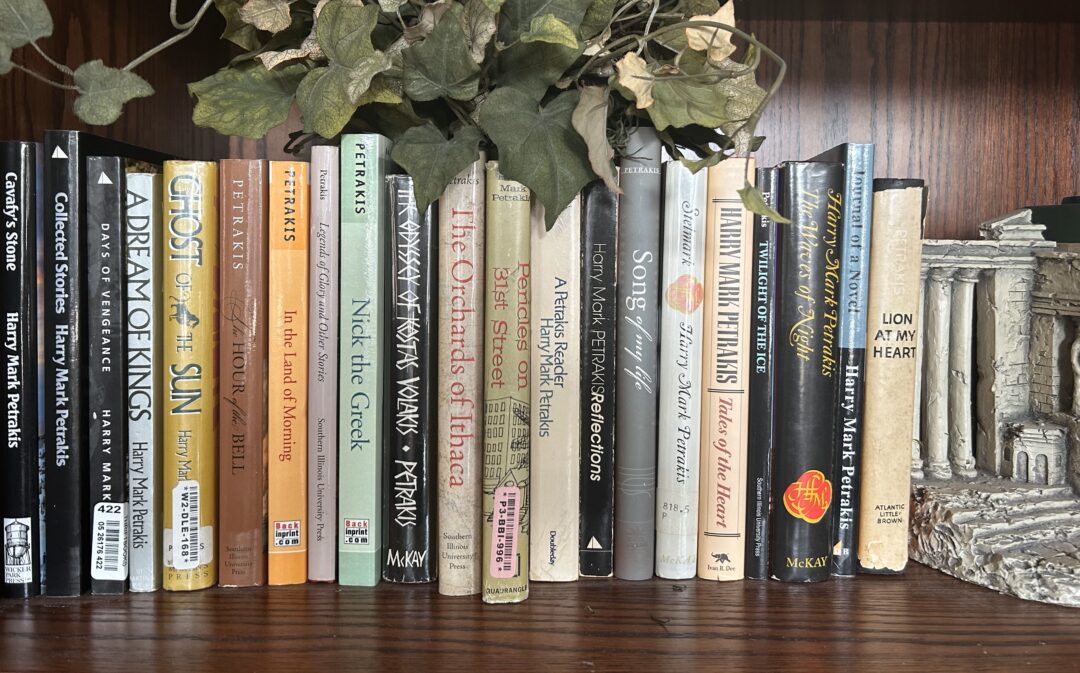
“I’m an avid reader, and I love supporting other authors–especially Greek authors and those who write about Greece. I’m on a mission to amplify their voices!” Tell us more.
As a writer and avid reader, I have a great respect for those who take the time to put words on a page. There are so many talented Greek writers around the world, and still more that aren’t Greek that love Greece and write about her as well. I call them PhilHellenes, because they love Greece so much. In the mainstream, you don’t hear much about them. Many of these authors have had to self-publish because they can’t get any traction. Their stories are wonderful and must be read! I’ve always believed that we need to support one another—that together we are strong. That’s the only way we’ll truly succeed. And that was my motto at WindyCity Greek. So, I always want to promote my fellow Greeks, and those who write about Greece too. I enjoy reading what non-Greeks write about Greece. Their love for our motherland shines through. I know that Greece is a magical land. I know the spell she’s cast on me. I see it in these writers as well. They fall in love with Greece. It inspires them. In some cases, made them writers. Then they, just like us, embody this line from Seferis: Όπου και να ταξιδέψω, η Ελλάδα με πληγώνει’. It’s true. When we’re away from Greece, we can’t stop thinking about when we’ll return. And we compare other places to Greece. Yes, we’re under the spell!
Additionally, I’ve returned to my marketing roots and incorporated all I’ve learned working in Greek media over the years into my work as a marketing & PR consultant, promoting authors and organizations in the Greek community. I also blog about books, including a regular feature I call ‘My Greek Books’, in which I review books written by Greeks (of the world); or books written about Greece, Greeks, or Greek themes. I have the privilege to read many books before they are published. I also do Q&As with other authors. Staying on the Greek theme, in my monthly newsletters, I feature the same types of books as well, including a special section on New Releases, and I also share links to interesting articles about books and writers. My social media is full of those types of posts. For the last couple of years, I’ve partnered with some local organizations, predominantly the Hellenic American Women’s Council-Great Lakes Region, to produce some author events here in the Chicago area. We’ve hosted some great events with Greek and PhilHellene authors, both in-person and virtual. It’s fun to do this “In Conversation” style. I interview them in front of an audience. They read a passage, then take questions from the group. I love the energy of it.
I want the world to know the wonders of Greece and Greeks around the world. Our rich culture, heritage, and traditions. The incredible talent, the fabulous voices. And storytelling is a great way to do that. This is why I do what I do. I’m definitely on a mission. This is a calling I feel in my heart and soul. That’s how much I love Greece—and being Greek.
What is it that characterizes the literary voice of foreign authors writing about Greece? Which are the main concepts their writings delve into? What narrative do they help form about the country?
Foreign writers have fallen in love with Greece, and that love shines through. Many write about history, bringing new perspectives. In the States, in history classes, we get a cursory look at world history. You must seek it out on your own. For example, I never knew about the Greeks of Asia Minor, until I read Thea Halo’s book, Not Even My Name. And Giles Milton’s Paradise Lost: Smyrna, 1922. I didn’t know about the Battle of Crete during WII—and that it changed the course of the war. Patrick Leigh Fermor’s writings, and his friend W. Stanley Moss’ book were eye opening. I learned so much. There’s so much yet to learn.
There are some wonderful travel memoirs, in which writers share their travels and life-changing experiences. I learn about places I haven’t yet visited. There also some incredible novelists. And more. A love for Greece culminates in a growing group of individuals who have been moved by Greece, that they’ve been inspired to write stories set there, to spend more time there, to share their love for what for may, becomes their adopted homeland.
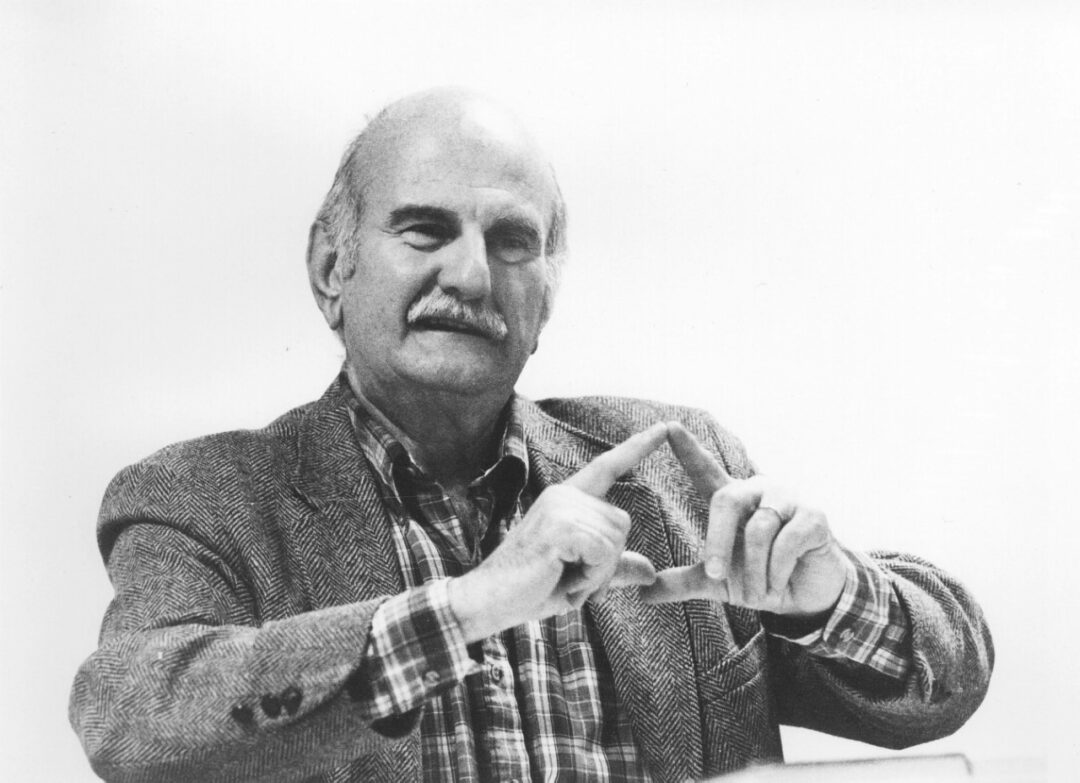
Harry Mark Petrakis
I’d be remiss if I didn’t speak about the many amazing authors in the Greek Diaspora. For example, Harry Mark Petrakis was the definitive writer of the Greek-American experience of the 50s, 60s, 70s. He really put us on the map, and truthfully, I believe he helped usher us into the mainstream. In those years, Greek-Americans faced much discrimination in the US. I could fill up pages with names of these incredible authors and their works. How much time do you have? LOL. But seriously, there are so many and I don’t want to leave anyone out. There are so many fabulous Greek-American, Greek-British, Greek-Cypriot, Greek-Canadian, and Greek-Australian authors, too. Greeks are everywhere—and Greek writers, too. In Northern Europe, Turkey, South Africa—they’re all around the globe. And poets too! Many incorporate Greece; Greek history, customs, traditions, and culture; as well as their own experience as Greeks/Diaspora Greeks into their work. I think as Greeks, we’re born storytellers. So many talented voices. My To-Be-Read stack is ever-growing. I don’t know if I’ll live long enough to read them all, but I’ll go down trying!
Could such authors act as cultural ambassadors fostering deeper understanding and love for Greece?
Absolutely. They do and gladly do so. For example, I’ve heard people say that they planned their travel itineraries based on Greek travel memoirs! Historical fiction writers can help expand people’s knowledge of history—particularly Greece’s place in it. Many authors in multiple genres cull inspiration from Greek mythology. Not just the myth retellings, which are still a really hot market, but also writers of thrillers, mysteries, fantasy, sci-fi, and more take themes from mythology and craft stories around the myths.
What about your own writings? Which are the main themes they relate to? How are the notions of ‘nostos’ and ‘homeland’ imprinted in your literary work? Tell us a few things about your current writing venture.
Greek mythology, history, customs and traditions, faith—it all comes together in my work. It all influences me. These things are imprinted in my DNA. They’re carved into my bones. We have a great legacy and it’s our responsibility to carry the torch, not only to subsequent generations, but to the world. You see my name. There’s no denying my roots. I might as well carry a Greek flag over my head. And I wouldn’t have it any other way.
Currently, I’m working through revisions of a historical novel set in Chicago’s original Greektown. The story opens in the late 1950s and spans 40 years and several generations. It follows a Greek immigrant family and explores this notion of “What will people say?” We’ve all had it drilled into our brains, “Τι θα πει ο κόσμος;”. You don’t shame the family—ever. In this story, we see the experience of Greek immigrants at that time, and through that lens, we explore just how far will a family go to protect themselves from shame. Because in those days, even the slightest scandal could cost you everything—your reputation and livelihood were on the line. Because no one wanted to be associated with a family embroiled in scandal. The children would have trouble marrying. People wouldn’t patronize your business. How would you feed your family? You could literally lose everything. This notion of shame is what I call the “immigrant family code of conduct”. It’s prevalent in other cultures. We also get a glimpse at Greek customs and traditions as well as some examination into that struggle of being true to your roots and assimilation. And while this family is scrambling to hide their secrets, they actually do lose everything when Greektown is leveled to build a university. This is a true event that happened in the early 1960s that many don’t know about. Little has been written. My late mother and her family lived through it, and I’ve always been fascinated by that time.
I’m working on a couple of short stories set in Greece, that involve a bit of magical realism. And of course, I’m evolving as a poet. I write in English, but one morning, I woke up with a poem in my head—in Greek. I want to explore that, so we’ll see where that goes.
I’ve also started a new project, though it will take some time to develop. My father didn’t tell many stories about growing up in Greece during WWII and the Greek Civil War, but the ones he did tell, he told often. I’m working on something based on those stories. I did some research while in Greece this summer. I’ll need to do more. Unfortunately, my father and his older brothers have passed away. Only their younger sister is alive, but she was born during the Civil War. She doesn’t remember the events. And I’ve learned, sadly, that my father’s siblings didn’t share any stories with their children. When I told my cousins the stories, they couldn’t believe it. I wholeheartedly believe that what my father experienced as a child in those historic times made him the person he was. My father was a selfless man, the most generous person you’d ever meet. He took care of everyone. I believe this experience drove him to do whatever it took to help his family—and that meant leaving his village as a teenager to go live and work in another town, and ultimately, to leave everyone and everything he knew to come to the States. His goal always was to help his family. And he did. He helped everyone. I wish he was here for me to ask more questions.
Greece inspires me and my work in infinite ways. From her restorative powers with respect to physical, emotional, and mental health, to the influence of the muses and the ancients. I often talk about “walking in the footsteps of the ancients”, but I must admit, I believe they’re walking alongside us, steering us to new discoveries. We just have to be open.
*Interview by Athina Rossoglou
TAGS: LITERATURE & BOOKS | READING GREECE

